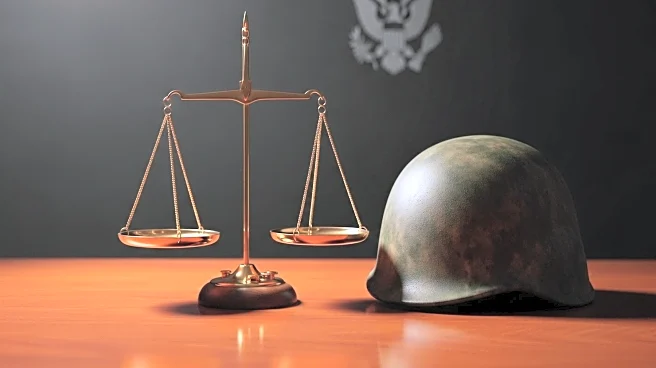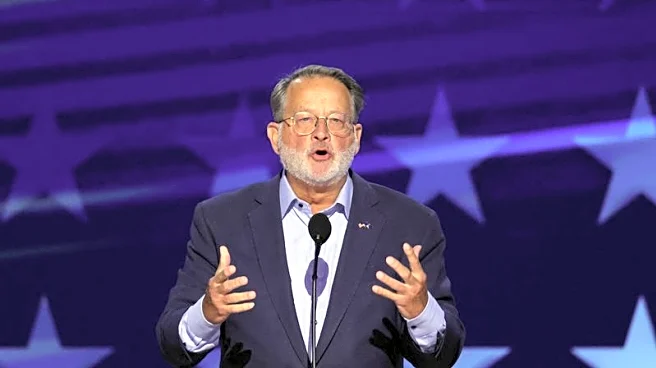What's Happening?
Legal experts are expressing concerns that the Trump administration is disregarding advice from military legal advisors, known as judge advocates general (JAGs), in its handling of military operations. This includes deployments of National Guard troops to U.S. cities and strikes on alleged drug cartels abroad. Defense Secretary Pete Hegseth recently dismissed the top JAGs from the Air Force, Army, and Navy, citing the need to remove 'roadblocks' to orders from the commander in chief. The administration has also designated certain cartels as terrorist organizations, justifying military action against them, which has sparked legal challenges and criticism from experts.
Why It's Important?
The sidelining of military legal advisors raises significant concerns about the legality and oversight of military operations under the Trump administration. The dismissals of top JAGs could undermine the checks and balances that ensure military actions comply with legal standards. This situation has implications for civil-military relations and the rule of law, as well as the potential for international repercussions if military actions are perceived as unlawful. The legal challenges to National Guard deployments highlight the tension between federal authority and state rights, impacting domestic security policies.
What's Next?
Legal challenges against the administration's actions are likely to continue, potentially leading to court rulings that could affect future military operations. The administration may face increased scrutiny from Congress and civil society groups regarding its handling of military legal advice. There may also be calls for greater transparency and accountability in military decision-making processes to ensure compliance with legal standards.
Beyond the Headlines
The situation underscores the importance of maintaining robust legal frameworks and oversight in military operations to prevent potential abuses of power. It also highlights the role of legal advisors in safeguarding the integrity of military actions and ensuring they align with national and international laws. The broader implications for civil-military relations and the balance of power between the executive branch and military institutions are significant.









